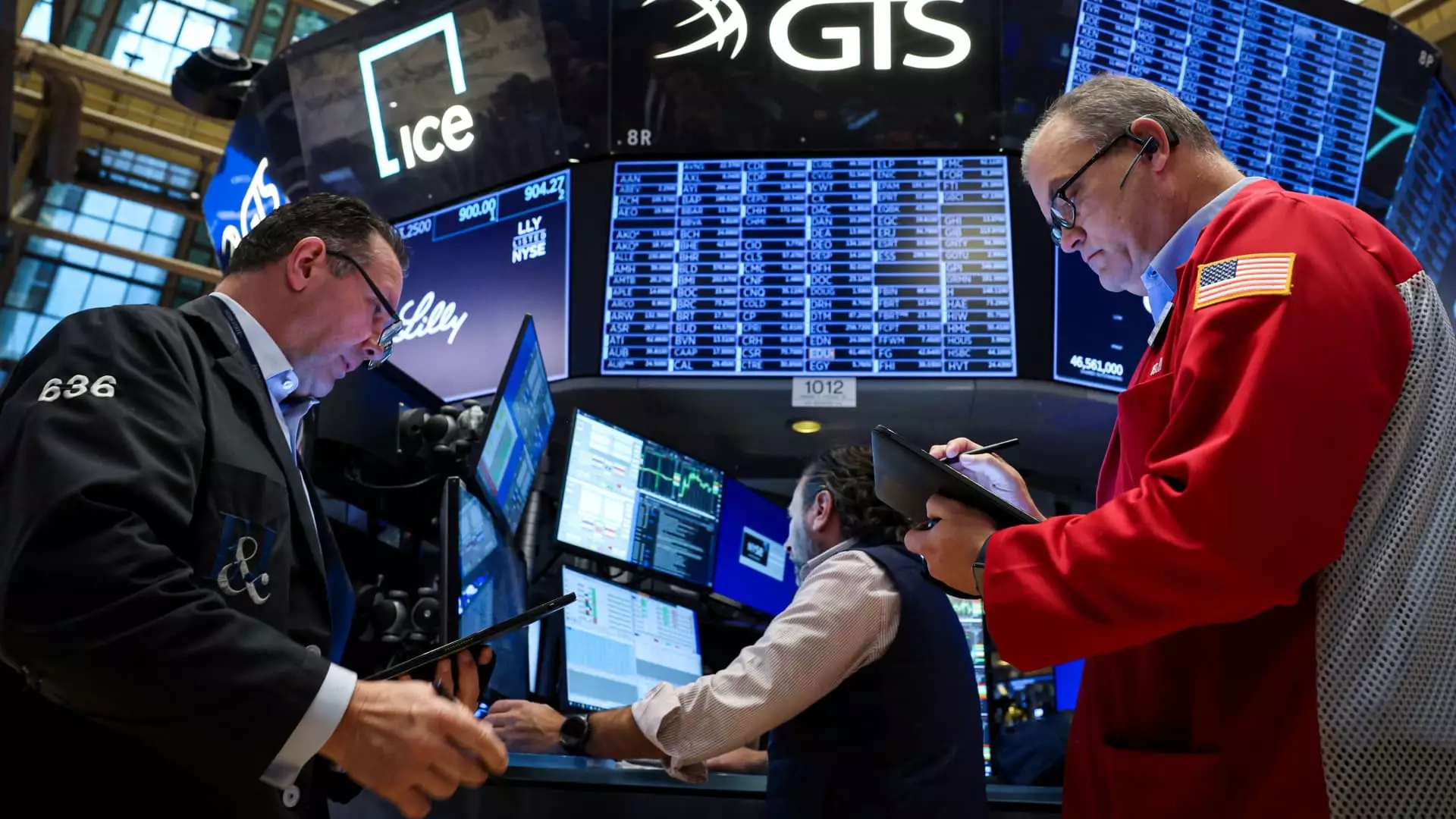With the U.S. presidential election just around the corner, concerns among investors have intensified. Market fluctuations are expected, leading to a series of short-term jitters that can unsettle even the most seasoned investors. Recent market performance indicates this uncertainty; the Dow Jones Industrial Average experienced its steepest drop since December, plummeting over 400 points in a single day. Similarly, the S&P 500 and Nasdaq Composite each witnessed declines, highlighting the pervasive anxiety that now permeates the investing landscape.
Jordan Jackson, a global market strategist from J.P. Morgan Asset Management, addressed these concerns during CNBC’s Your Money event. He warned that while the market may exhibit volatility leading up to the election, history suggests a rebound is often on the horizon. According to him, this trend is observable in past election cycles, where the markets have typically recovered significantly towards the year’s end. Yet, the question remains: How should investors navigate this tumultuous period?
A survey conducted by F&G reveals that 72% of American investors harbor worries surrounding the presidential election’s potential impact on the markets. Jackson concluded that, despite the prevailing uncertainties, the most prudent course of action is to “stay the course.” He emphasized the resilience of markets, reiterating that in the grand scheme of things, the outlook remains cautiously optimistic.
Despite the recent headwinds, there are positive indicators surfacing within the economy. Notably, expectations for additional interest rate cuts following September’s reduction point towards a potentially more favorable financial environment as inflation seems to stabilize. The Consumer Price Index (CPI) inflation rate, which saw a high of 9.1% in June 2022, has significantly cooled down to 2.4% as of September. Jackson considers this backdrop highly supportive of market recovery.
From a corporate perspective, Jackson shared insights highlighting the strength of fundamentals, although he cautiously advised against making hasty sector bets based solely on political discourse anticipated during campaigns. His take suggests an emphasis on analytical data such as earnings reports rather than immediate reactions to political rhetoric. He paints a picture of a market that may soon see numerous all-time highs, building confidence in investors for the upcoming year.
Despite these optimistic projections, Jackson acknowledges that consumers may require more time to adjust to the shifting economic landscape. Although wages are witnessing an uptick and unemployment rates remain low, consumer confidence is a gradual process. He predicts that over the next year, households will gradually regain spending power and confidence, fostering a more robust economic environment.
As the election date approaches, both investors and consumers are bracing for a period of potential volatility. While concerns are valid, historical trends indicate a potential recovery on the horizon. By focusing on fundamental indicators and adopting a steady investment strategy, there exists a pathway toward navigating this uncertain period effectively. For both individuals and the market at large, maintaining a measured approach may yield positive results in the long term as conditions gradually stabilize.

